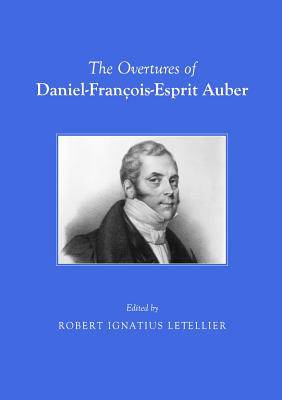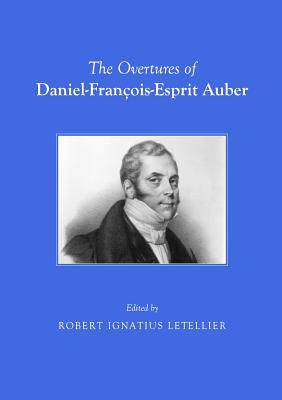
- Retrait gratuit dans votre magasin Club
- 7.000.000 titres dans notre catalogue
- Payer en toute sécurité
- Toujours un magasin près de chez vous
- Retrait gratuit dans votre magasin Club
- 7.000.0000 titres dans notre catalogue
- Payer en toute sécurité
- Toujours un magasin près de chez vous
144,45 €
+ 288 points
Description
The overtures of Daniel-Francois-Esprit Auber (1782-1871), once as popular as those of Gioacchino Rossini and Franz von Suppe, were formerly known everywhere, a staple of the light Classical repertoire. The influence of Auber's melodies and dance rhythms on piano and instrumental music, and on the genre of Romantic comic opera, especially in Germany, was overwhelming. The operas themselves, apart from Fra Diavolo (1830), have virtually passed out of the repertoire, but some of their overtures live on vicariously, and sound brilliant and charming when given the chance-The Bronze Horse, Masaniello, The Crown Diamonds, Fra Diavolo, The Black Domino. The freshness of the melody, the incision of the orchestral colours, and the rhythmic vitality are still capable of generating a visceral excitement. Auber, the most amiable French composer of the 19th century, came to his abilities late in life. After a stalled commercial career, he studied with Cherubini. His first operas were not a success, but La Bergere Chateleine (1820), written at the age of 38, established him as an operatic composer. It was at this time that he met the librettist Eugene Scribe (1791-1861), with whom he established a working partnership, one of the most successful in musical history, that lasted until Scribe's death. After Le Macon (1825) and La Muette de Portici (1828), Auber's life was filled with success. In 1829 he was appointed a member of the Institut, in 1839 Director of Concerts at Court, in 1842 Director of the Conservatoire, in 1852 Musical Director of the Imperial Chapel, and in 1861 Grand Officer of the Legion d'Honneur. Auber's famous historical grand opera La Muette de Portici (Masaniello) is a key work in operatic history, and helped to inspire the revolution in Brussels that led to the separation of Belgium from Holland. Auber himself experienced four French Revolutions (1789, 1830, 1848, 1870). The latter (The Commune) hastened the end of his life. He died on 12 May 1871, at the advanced old age of 89, and in the pitiful conditions of civil strife, after a long and painful illness which worsened during the Siege of Paris. He refused to leave the city he had always loved despite the dangers and privation, even after his house had been set on fire by the petroleurs et petroleuses. By some irony a mark had been placed against the house of the composer of La Muette de Portici, the very voice of Romantic liberty! Auber's elegant and restrained art now has little appeal for the world of music, attuned as it is to meatier substance of verismo, high Wagnerian ideology, and twentieth-century experimentalism. But he was once a household name, and his pared style, fleet rhythms and restrained emotion were a byword of taste. This collection brings together 40 of Auber's overtures, from his first great success with La Bergere Chatelaine, to his last opera, written at the age of 87, Reve d'Amour, and including the concert overture he wrote in 1862 for the London Exhibition. Auber adopted the Rossinian adaptation of the overture genre, a sonata form with foreshortened development (or a sequential passage for transition back to the recapitulation). His handling of this basic structure remained consistent throughout his career, and followed three or four differing approaches, but always invested with his characteristic verve, rhythmic elan, clarity of texture, and brilliance of orchestration. In all, the overtures, especially when viewed as a corpus, present a journey through the creative life of composer dedicated to musical drama, who always remained the perfect exemplar of a certain French style and elegance-even in his serious works.
Spécifications
Parties prenantes
- Auteur(s) :
- Editeur:
Contenu
- Nombre de pages :
- 467
- Langue:
- Anglais
Caractéristiques
- EAN:
- 9781443827027
- Date de parution :
- 01-03-11
- Format:
- Livre broché
- Format numérique:
- Trade paperback (VS)
- Dimensions :
- 208 mm x 290 mm
- Poids :
- 780 g

Les avis
Nous publions uniquement les avis qui respectent les conditions requises. Consultez nos conditions pour les avis.






